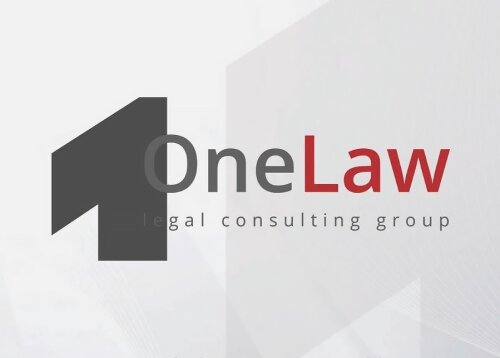Best Oil, Gas & Energy Lawyers in Yekaterinburg
Share your needs with us, get contacted by law firms.
Free. Takes 2 min.
List of the best lawyers in Yekaterinburg, Russia
About Oil, Gas & Energy Law in Yekaterinburg, Russia
Yekaterinburg, the administrative center of the Sverdlovsk Oblast, is a key industrial city in Russia. The region is rich in natural resources, making it a hub for the oil, gas, and energy industries. The city's strategic location near the Ural Mountains provides access to extensive mineral resources, which play a crucial role in Russia's energy sector. The regional economy heavily depends on these industries, requiring robust legal frameworks to manage operations, address environmental concerns, and regulate economic activity.
Why You May Need a Lawyer
In the complex world of oil, gas, and energy, having legal support can be indispensable. Here are a few common scenarios where legal assistance may be required:
- Contract Negotiations: Drafting, reviewing, and negotiating contracts for exploration, production, and distribution.
- Compliance and Regulatory Issues: Navigating the extensive regulatory requirements and ensuring compliance with local and federal laws.
- Environmental Concerns: Addressing environmental regulations and managing liabilities related to pollution and resource depletion.
- Dispute Resolution: Handling disputes relating to property rights, contract breaches, or joint ventures.
- Licensing and Permits: Assisting in acquiring necessary licenses and permits for exploration and production activities.
Local Laws Overview
Oil, gas, and energy operations in Yekaterinburg are primarily governed by federal legislation, though regional regulations also play an important role. Key aspects of these laws include:
- Subsoil Law: Governs the exploration and use of mineral resources, including licensing and environmental protection norms.
- Energy Law: Regulates the production, transmission, and sale of energy, focusing on efficiency and sustainability.
- Environmental Legislation: Encompasses laws aimed at reducing pollution, conserving energy, and protecting local ecosystems.
- Taxation and Royalties: A framework for calculating and collecting taxes and royalties from energy companies operating in the region.
- Health and Safety Regulations: Sets standards for protecting the well-being of workers and surrounding communities.
Frequently Asked Questions
What types of contracts are commonly used in the oil and gas industry?
Common contracts include joint venture agreements, production sharing agreements, service contracts, and lease agreements. Each serves different purposes depending on the nature of the project and the parties involved.
How can I ensure compliance with environmental regulations?
Engage a legal expert familiar with Russian environmental laws. They can provide guidance on sustainable practices, audit compliance, and help obtain necessary environmental permits.
What should I consider when negotiating a joint venture in the energy sector?
Key considerations include profit sharing, management roles, dispute resolution mechanisms, exit strategies, and aligning the objectives of all parties involved.
Do foreign companies face specific challenges in the Russian oil and gas market?
Yes, foreign companies often deal with complex regulatory environments, local competition, and geopolitical factors. Legal counsel can help navigate these challenges effectively.
What are the steps to acquire an exploration license in Yekaterinburg?
An exploration license typically requires submitting applications to relevant regional and federal authorities, demonstrating technical capability, and ensuring compliance with environmental standards.
How are royalties calculated for oil and gas extraction in the region?
Royalties are calculated based on production volumes and prevailing market prices. They are subjected to both federal and regional tax regulations.
What legal protections are available against expropriation?
The Russian legal framework offers protections under the national law and international treaties that safeguard investments against unlawful expropriation.
Can I appeal a denied energy project permit?
Yes, there is a legal process for appealing denied permits. It involves submitting additional documentation and may require legal representation to effectively argue your case.
What should companies know about health and safety regulations?
Companies must comply with federal and regional health and safety laws, which include rigorous standards for workplace conditions, training, and emergency preparedness.
Are there incentives for renewable energy projects?
Yes, the Russian government has been increasingly supportive of renewable energy, offering incentives like tax breaks, subsidies, and grants to promote sustainable energy projects.
Additional Resources
For more information and assistance, consider reaching out to the following organizations:
- Sverdlovsk Oblast Energy Commission: Provides guidance on regional energy policies and regulatory requirements.
- Russian Ministry of Energy: A key governmental body overseeing energy policy and regulation on a national level.
- Federal Service for Environmental, Technological and Nuclear Supervision (Rostekhnadzor): Responsible for environmental regulations and safety oversight in energy sectors.
- Chamber of Commerce and Industry of the Russian Federation: Offers support and resources for businesses operating in the energy sector.
Next Steps
If you require legal assistance in the field of oil, gas, and energy in Yekaterinburg, consider these steps:
- Assess Your Needs: Determine the specific areas where you need legal advice or representation.
- Research Legal Experts: Look for lawyers or law firms specializing in oil, gas, and energy law with experience in the Yekaterinburg region.
- Schedule Consultations: Meet with potential legal advisors to discuss your needs and evaluate their expertise.
- Engage Legal Services: Once you find a suitable legal expert, formalize the engagement to begin receiving the necessary legal support.
- Stay Informed: Keep abreast of any changes in local and federal energy laws and regulations that may impact your operations.
Lawzana helps you find the best lawyers and law firms in Yekaterinburg through a curated and pre-screened list of qualified legal professionals. Our platform offers rankings and detailed profiles of attorneys and law firms, allowing you to compare based on practice areas, including Oil, Gas & Energy, experience, and client feedback.
Each profile includes a description of the firm's areas of practice, client reviews, team members and partners, year of establishment, spoken languages, office locations, contact information, social media presence, and any published articles or resources. Most firms on our platform speak English and are experienced in both local and international legal matters.
Get a quote from top-rated law firms in Yekaterinburg, Russia — quickly, securely, and without unnecessary hassle.
Disclaimer:
The information provided on this page is for general informational purposes only and does not constitute legal advice. While we strive to ensure the accuracy and relevance of the content, legal information may change over time, and interpretations of the law can vary. You should always consult with a qualified legal professional for advice specific to your situation.
We disclaim all liability for actions taken or not taken based on the content of this page. If you believe any information is incorrect or outdated, please contact us, and we will review and update it where appropriate.










